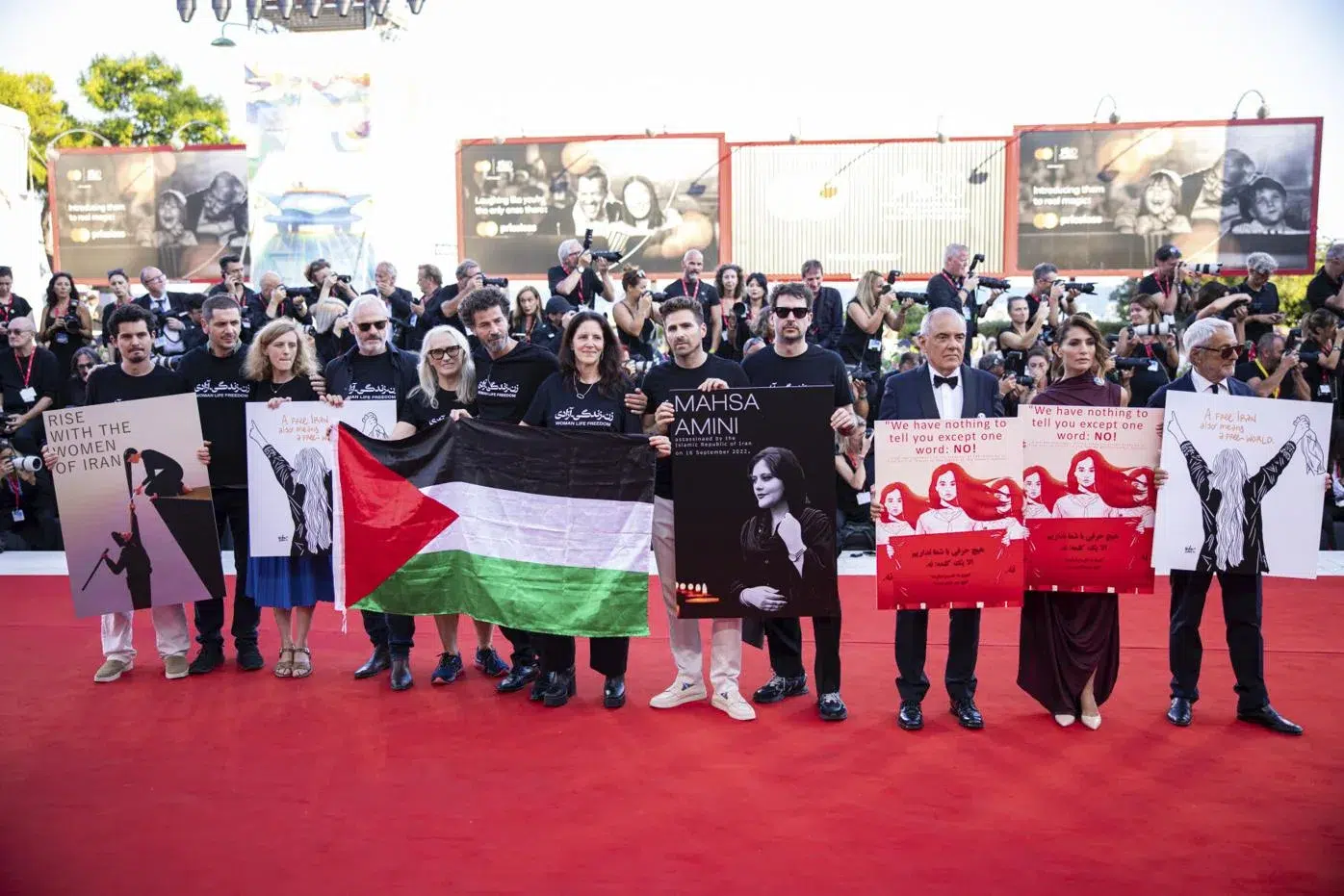At the recent Venice Film Festival, the red carpet, typically a symbol of glamour and luxury, took on a new role. It became a stage for unity and advocacy, as celebrities and activists united to voice their support for the Iranian people.
Among the sea of placards and banners, chants of “Free Iran” and “Women, life, freedom” echoed, with many participants holding posters featuring the image of Iranian director Saeed Roustaee. Roustaee faced imprisonment for showcasing a film at Cannes without the Iranian government’s approval. His film, “Leila’s Brothers,” delves into a family’s struggles amidst Iran’s economic challenges.
Prominent among the demonstrators was Saleh Bakri, a Palestinian actor and jury member at the festival. Bakri, in his statement, lauded Roustaee as one of the finest young artists and emphasized the overarching message of the protest:
“We are saying a word, one word: freedom for all.”
His sentiments were echoed by other notable figures, including Iranian actress Zar Amir Ebrahimi and Israeli director Guy Nattiv, who were in Venice for their film “Tatami.” This film narrates the tale of an Iranian female judo fighter pressured by her government to feign an injury during a championship.
Saleh Bakri, born on March 1, 1977, is not just an actor but a symbol of Palestinian representation in cinema. With roots in theater, Bakri has carved a niche for himself in Palestinian cinema. He hails from a family deeply entrenched in the arts; he’s the son of actor and director Mohammad Bakri and has two actor brothers, Ziad and Adam Bakri.
Bakri’s illustrious career boasts of performances in plays like “Death and the Maiden” under the direction of Juliano Mer-Khamis. His cinematic journey includes roles in films such as “The Band’s Visit” and “Salt of this Sea” by Annemarie Jacir.
The latter, which marked his Arab film debut, was also Palestine’s official submission for the Academy Awards. Bakri’s versatility shines through in “The Time That Remains,” where he portrayed Elia Suleiman’s father, Fouad. In 2021, his film “The Present” earned a nomination for the Academy Award for Best Live Action Short Film. By 2022, Bakri took the lead in “The Blue Caftan,” a film by Maryam Touzani. He also ventured into Egyptian television with the series “Taghyeer Gaw” during the last Ramadan.
In a heartfelt conversation with Variety post the Venice event, Bakri, the star of “The Blue Caftan,” shared his deep-rooted sentiments about freedom. He said,
“Freedom for Iran, but also for every oppressed country and its people who fight. I am with them, from the bottom of my heart. I understand their suffering. I am a Palestinian and I have been longing for freedom for a very long time, since I can remember.”
Bakri’s presence and voice at the Venice Film Festival not only highlighted the plight of the Iranian people but also underscored the broader theme of freedom and the Palestinian representation in global cinema.










What do you think?
It is nice to know your opinion. Leave a comment.